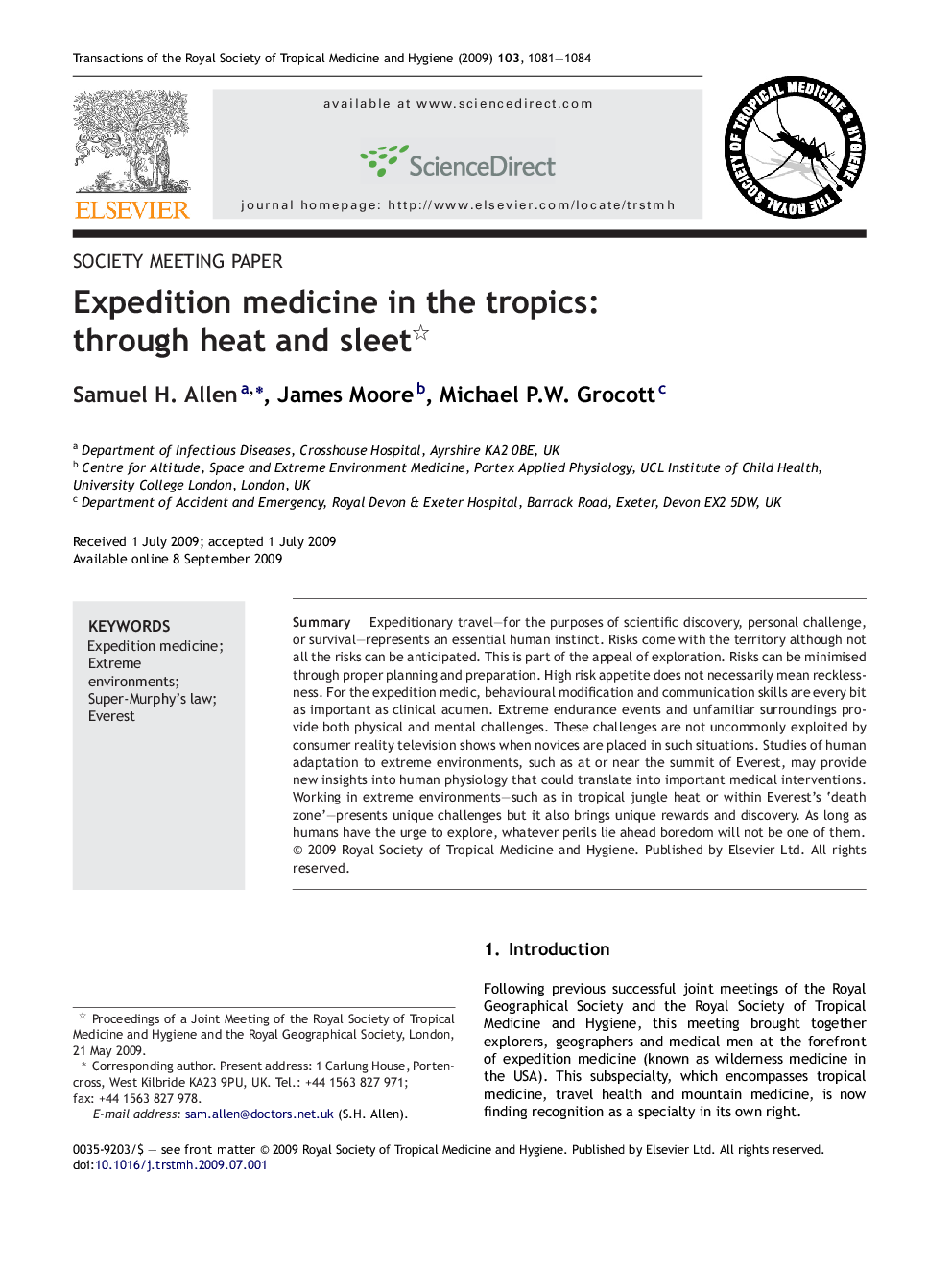| Article ID | Journal | Published Year | Pages | File Type |
|---|---|---|---|---|
| 3420562 | Transactions of the Royal Society of Tropical Medicine and Hygiene | 2009 | 4 Pages |
Abstract
Expeditionary travel-for the purposes of scientific discovery, personal challenge, or survival-represents an essential human instinct. Risks come with the territory although not all the risks can be anticipated. This is part of the appeal of exploration. Risks can be minimised through proper planning and preparation. High risk appetite does not necessarily mean recklessness. For the expedition medic, behavioural modification and communication skills are every bit as important as clinical acumen. Extreme endurance events and unfamiliar surroundings provide both physical and mental challenges. These challenges are not uncommonly exploited by consumer reality television shows when novices are placed in such situations. Studies of human adaptation to extreme environments, such as at or near the summit of Everest, may provide new insights into human physiology that could translate into important medical interventions. Working in extreme environments-such as in tropical jungle heat or within Everest's 'death zone'-presents unique challenges but it also brings unique rewards and discovery. As long as humans have the urge to explore, whatever perils lie ahead boredom will not be one of them.
Related Topics
Life Sciences
Immunology and Microbiology
Applied Microbiology and Biotechnology
Authors
Samuel H. Allen, James Moore, Michael P.W. Grocott,
